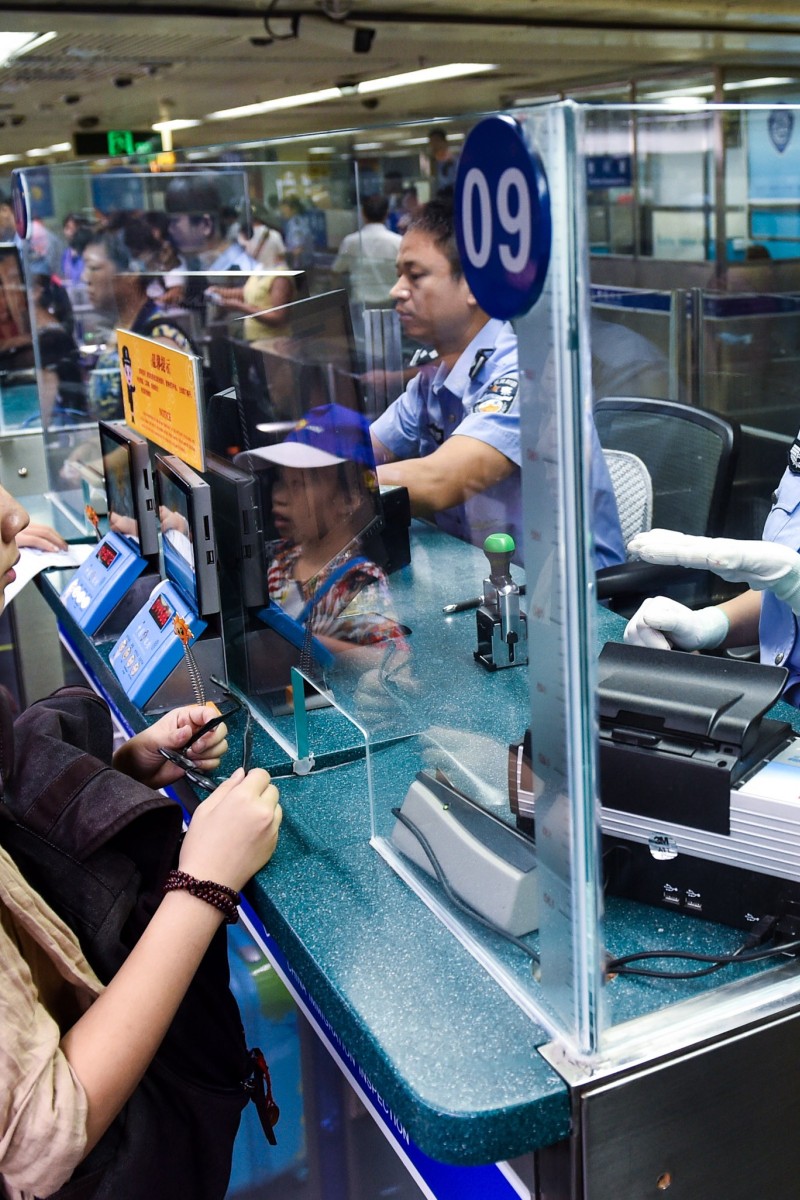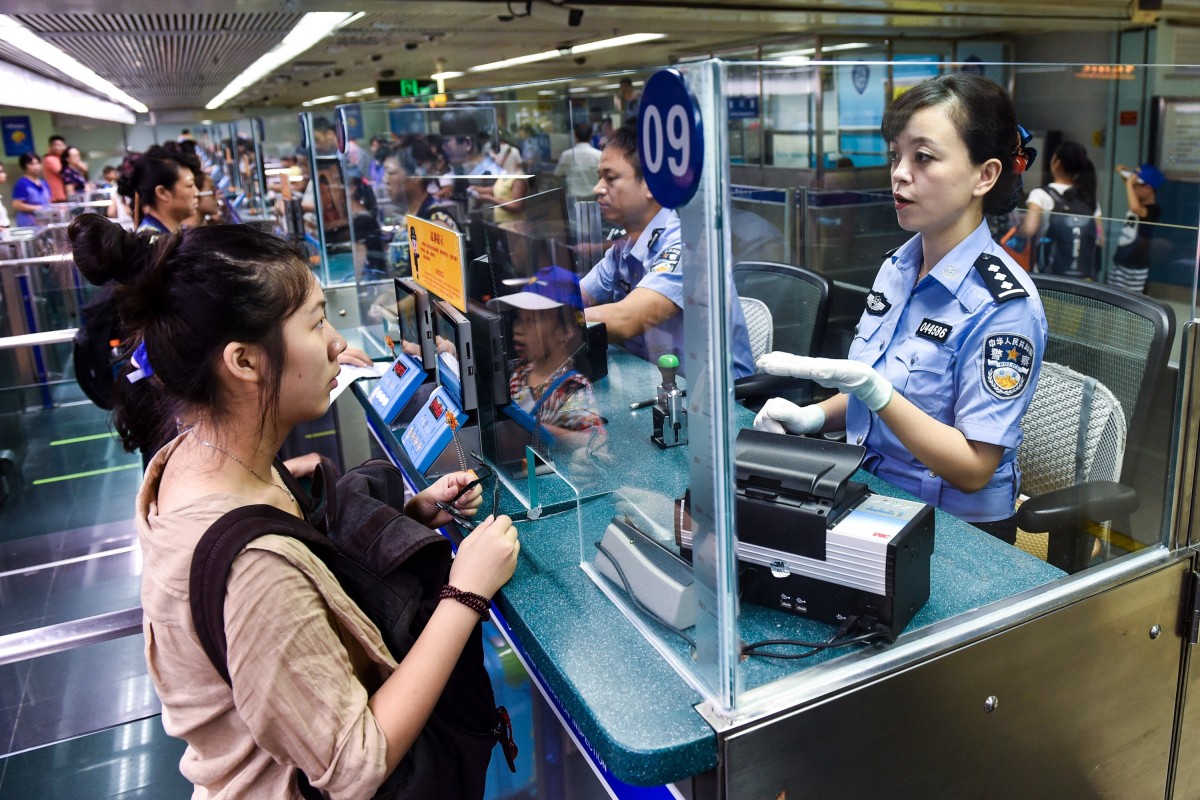
Residents say they have been asked to unlock their mobile phones when trying to cross the border, and officers have checked their messages
 Travellers getting through Immigration Department’s examination at Chinese border.
Travellers getting through Immigration Department’s examination at Chinese border.Hongkongers trying to cross the border into mainland China have reported being asked to unlock their mobile phones by immigration officers for the inspection of photos and videos related to the anti-extradition bill protests.
Of 10 travellers who shared their experiences with the SCMP, five said mainland authorities had also inspected their private messages at land control points between Hong Kong and the neighbouring city of Shenzhen.
How Beijing has described the situation in Hong Kong - 'Terrorism'
All of them – most of whom declined to be named as they cross the border regularly and feared repercussions if they were named – said this was the first time they had the contents of their phone examined.
Ben Crox, a 38-year-old technology and public relations consultant, said his phone was inspected on July 24 at the mainland port area inside the city’s high-speed rail terminal in West Kowloon.
The consultant refused initially, and asked for a lawyer, but was told he could only contact someone on the mainland. His request to exit the mainland port area and return to Hong Kong soil was denied.
After he agreed to the phone check, Crox said, mainland officers went through photos and videos from June and July this year.
“They asked what I did, and whether I joined the protests,” he said, adding that immigration officers also viewed private messages and confiscated his book about dating in modern China.
Three engineers said they had similar encounters at the Lok Ma Chau and Lo Wu control points in July and August.
The youngest, aged 21, said mainland officers specifically wanted to view photos taken on July 1, July 14 and July 21 – the dates of major protests in Admiralty, Sha Tin and Sheung Wan, respectively.
A timeline of the anti-extradition protests in Hong Kong
An SCMP journalist who had covered the extradition bill protests said he was also questioned. He was asked to enter a separate booth in Shenzhen Bay to have his belongings searched.
He was told he only had two options – to cooperate with the phone check, or be sent to “another department” that they did not specify.
“They first went through my photos and videos, one by one, and asked me to explain what was happening,” he said, adding that officers also went into his chats on WhatsApp before he was let go.
The reporter, who was born on the mainland and goes there regularly, said it was the first time he had his phone inspected.
On July 24, a 29-year-old designer, who did not want to be named, was taken into a room at Lo Wu checkpoint after a mainland official went through all the images on his phone, including those taken during a June 16 protest in which he took part.
“They asked if I supported the protesters and kept saying that Hongkongers were bribed and manipulated by foreign forces,” he said.
Carrie Lam says airport protesters are 'attempting to destroy the rule of law'
He and four others were later taken to a police station across the border, where he was further questioned, photographed and had his fingerprints and a blood sample taken.
He was eventually released at 1am, six hours after he was stopped, and after he signed a “letter of assurance”. He was also asked not to participate in any more marches and to delete all the videos and images in his phone in their presence, he said. The SCMP was unable to independently verify his account.
Prominent Chinese human rights lawyer Chang Boyang said it was unlawful for immigration officers to examine the contents of travellers’ mobile phones.
“They could check on objects in their belongings to see if those were contraband, but they are not authorised to read the content in their mobile phones,” Chang said. “It would be violating the travellers’ right to privacy and freedom of communication.”
A source at Shenzhen’s border inspection force said the extra scrutiny did not apply to all travellers, only those considered “risky” on the authorities’ list, without elaborating.
The National Immigration Administration and the Shenzhen General Station of Exit and Entry Frontier Inspection did not respond to queries from the SCMP.